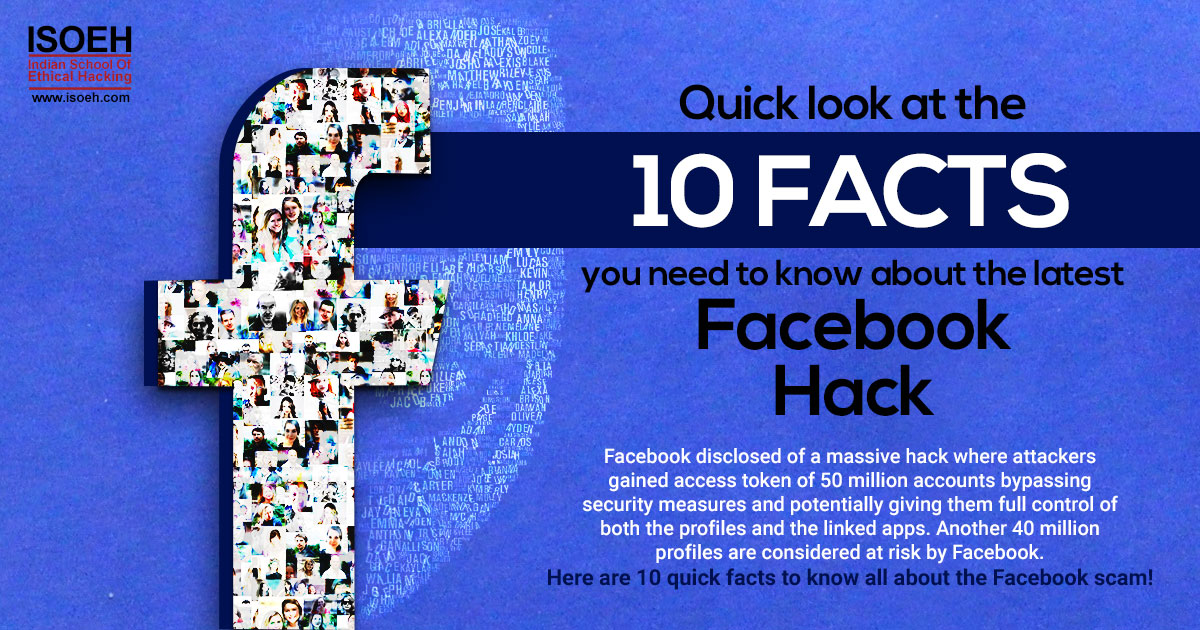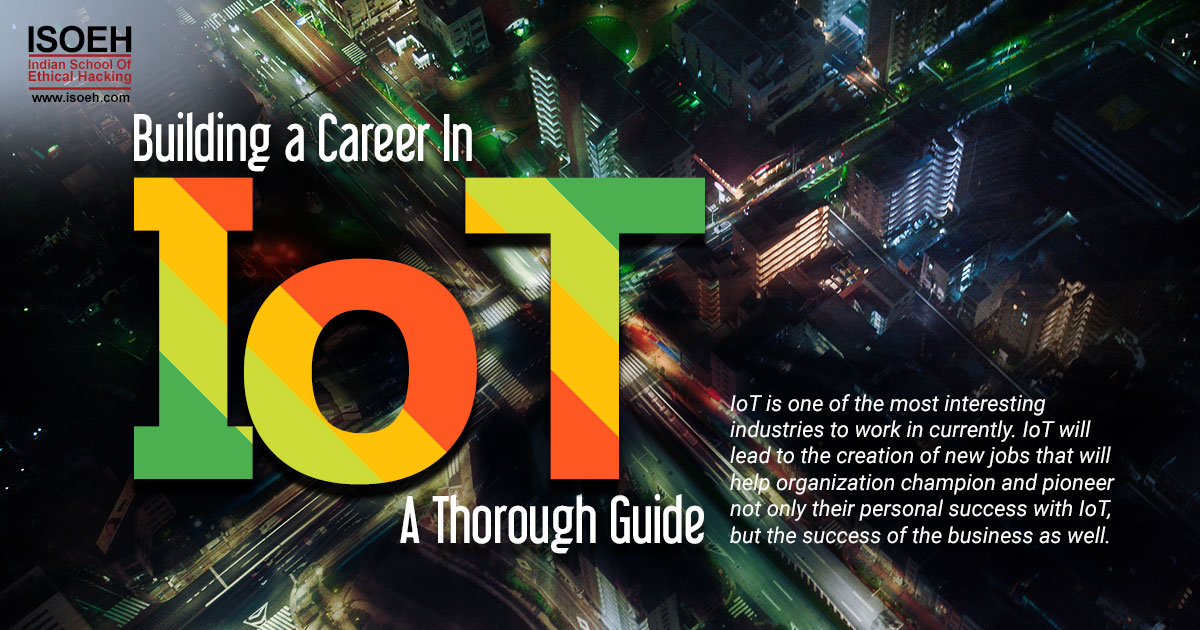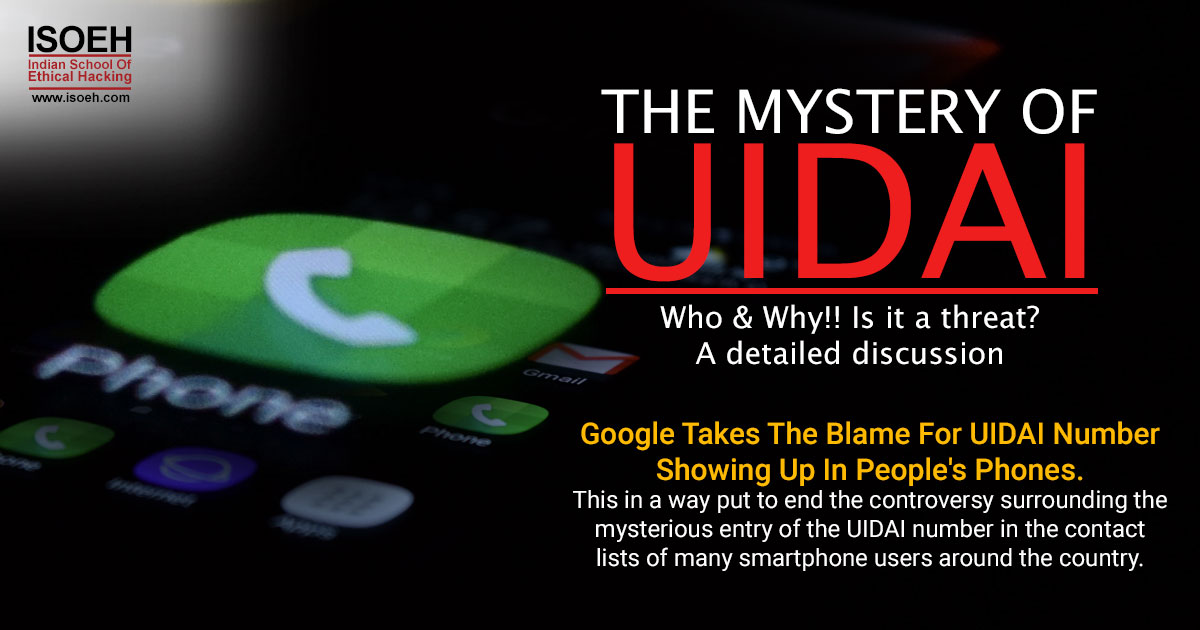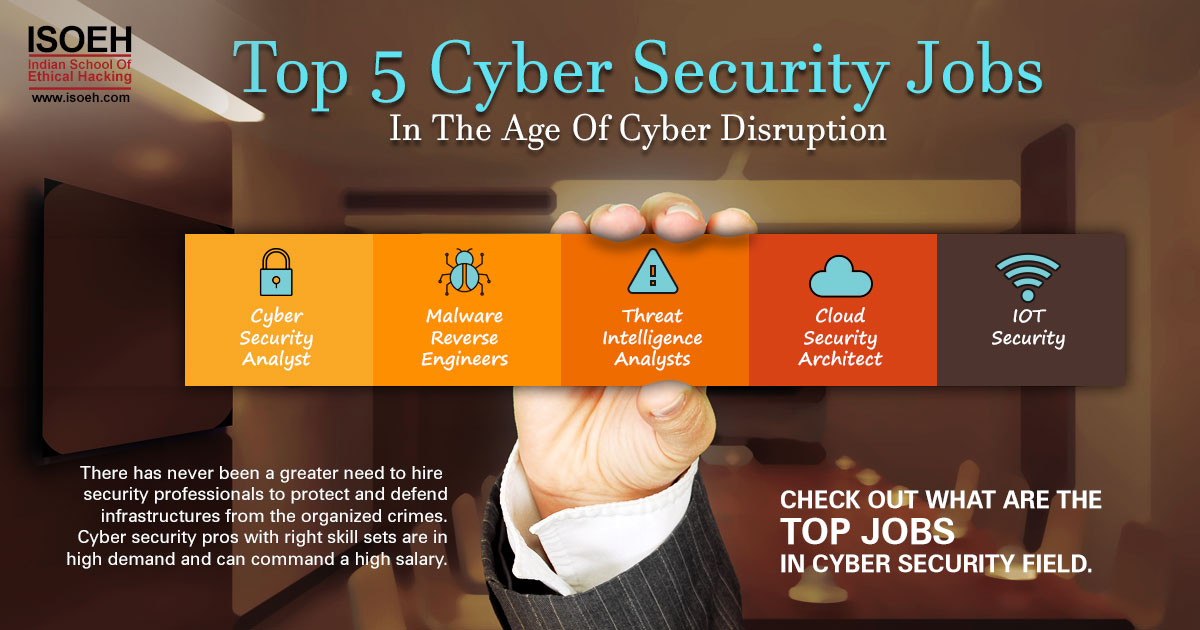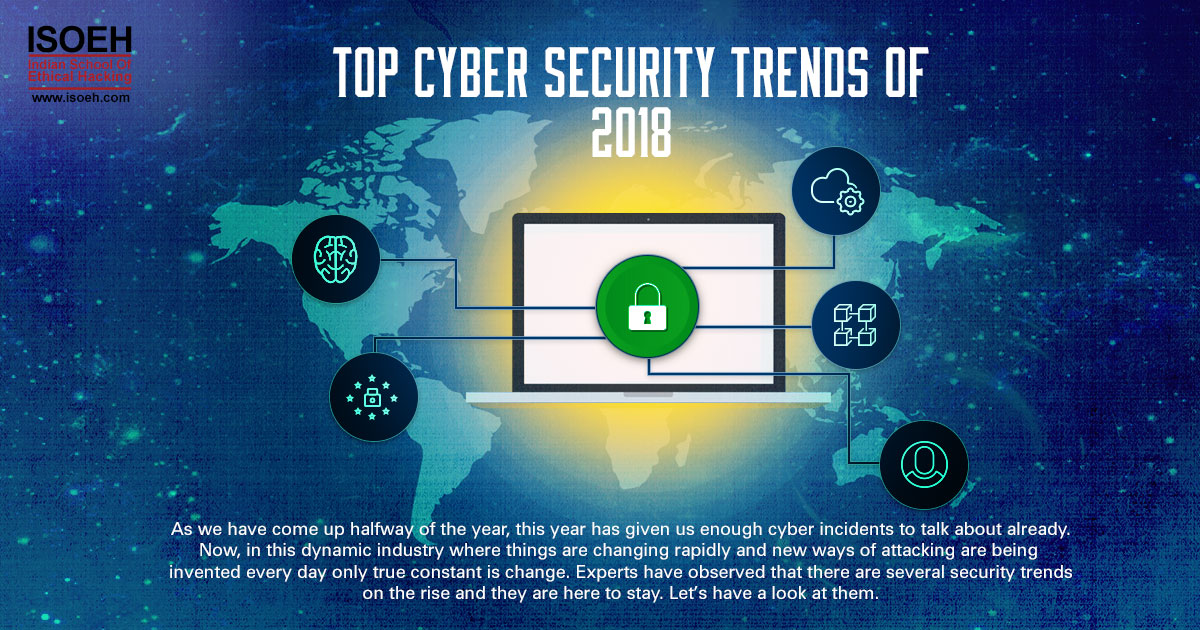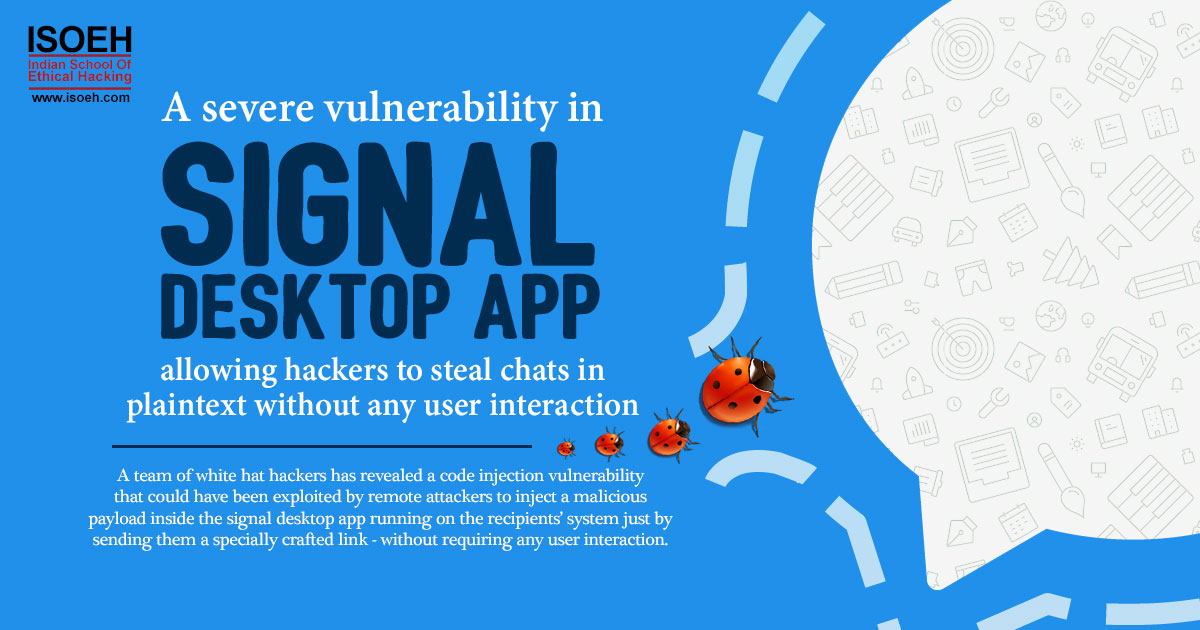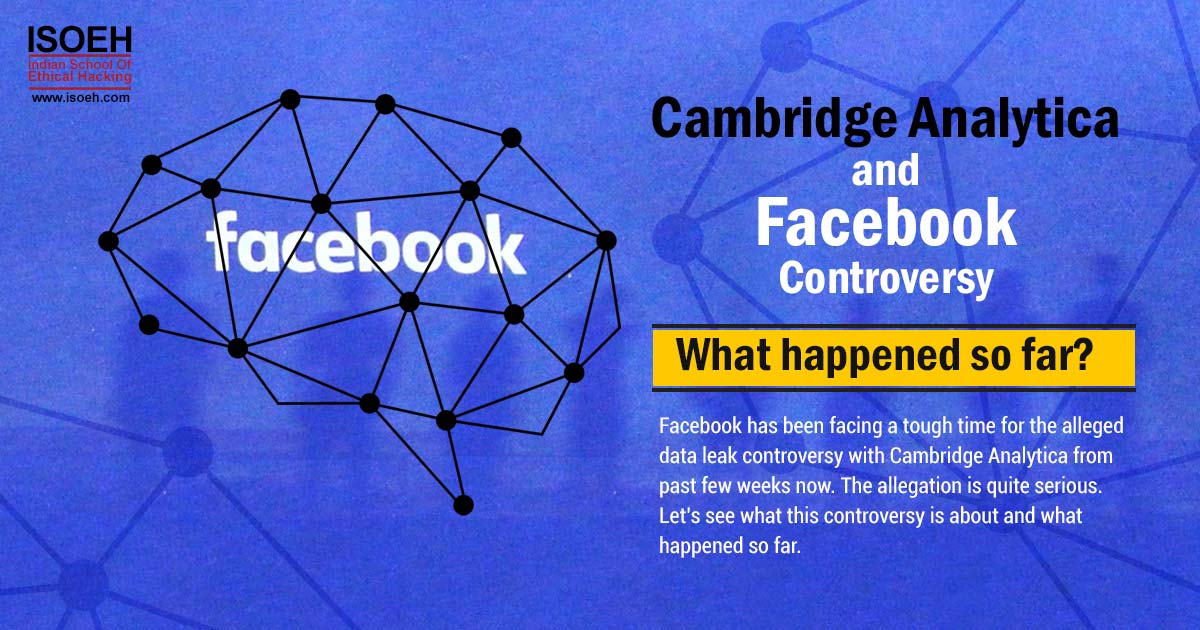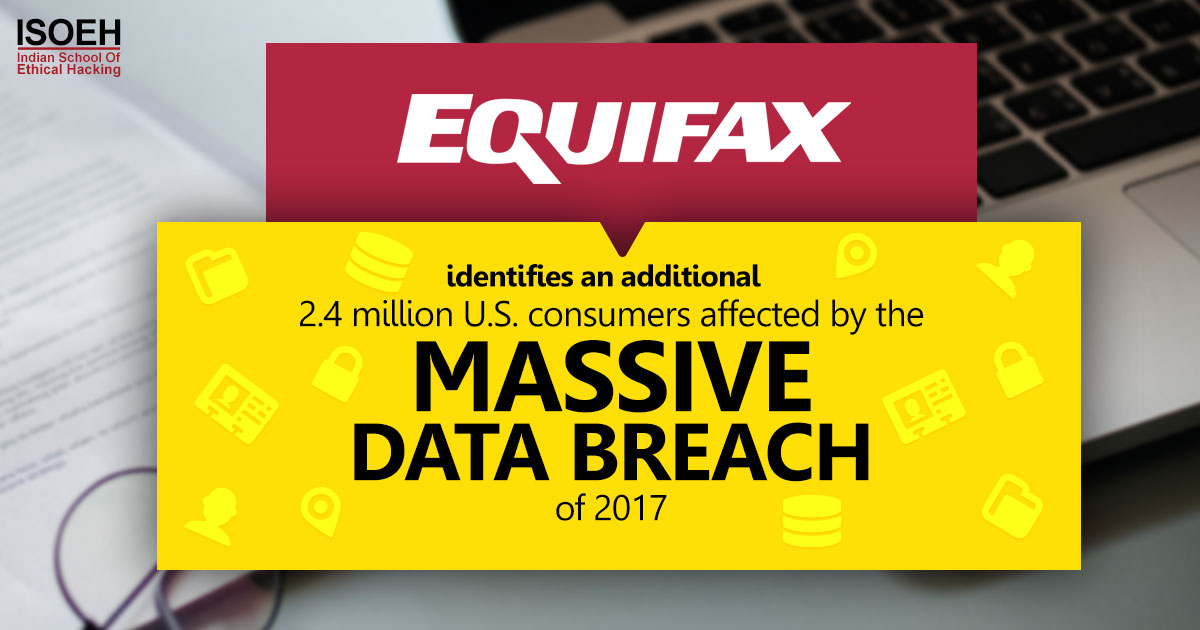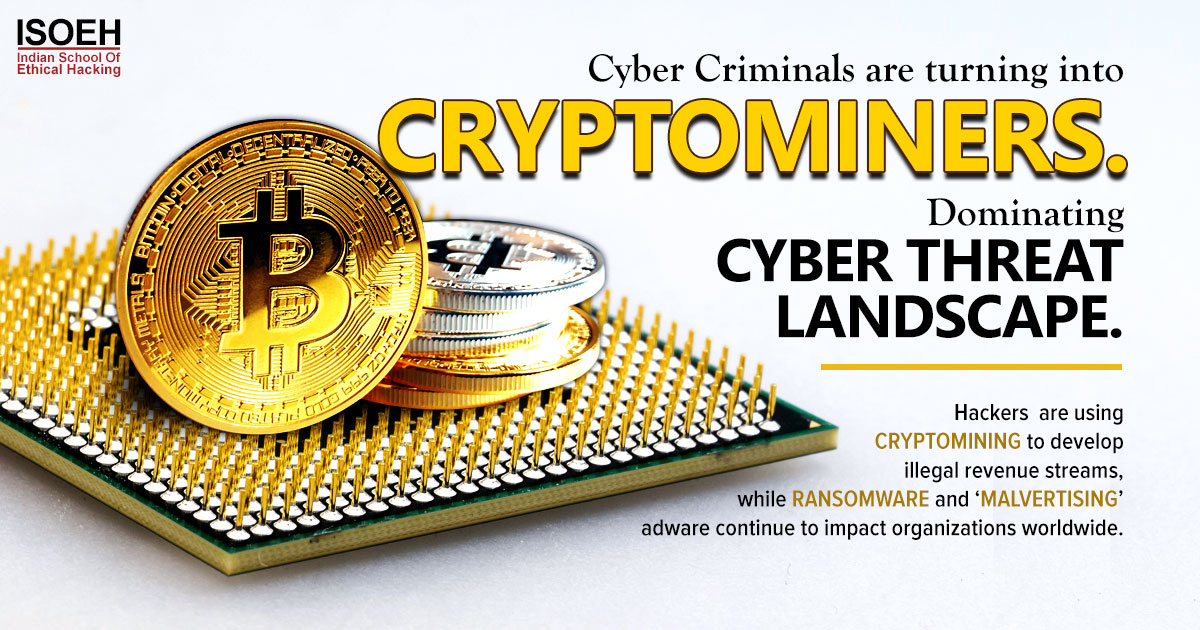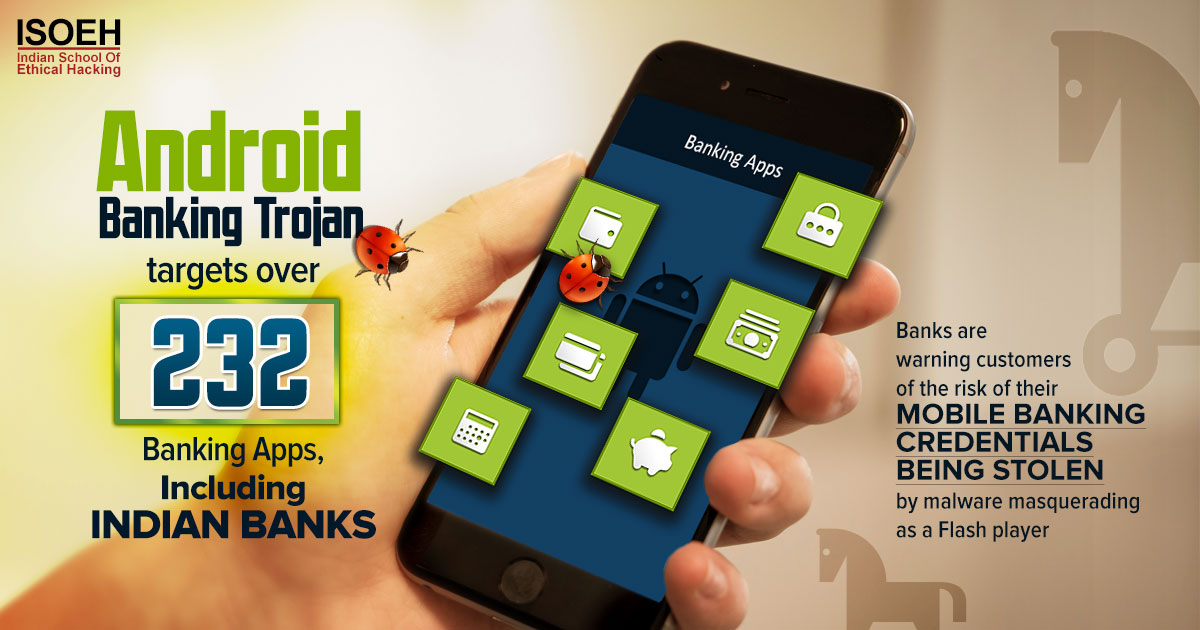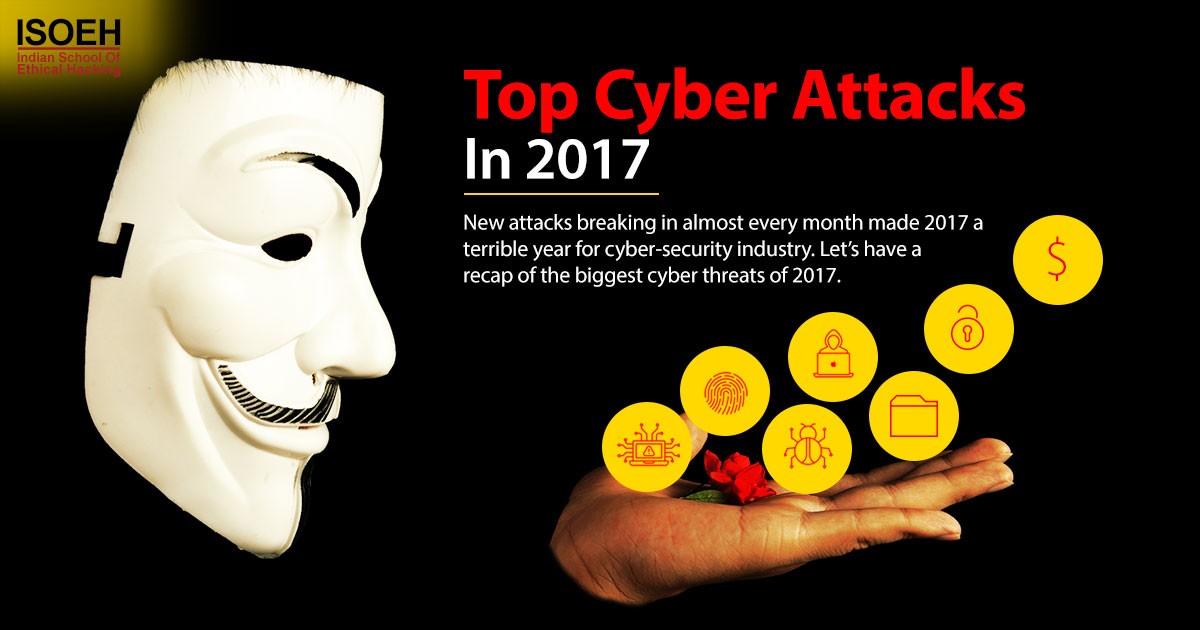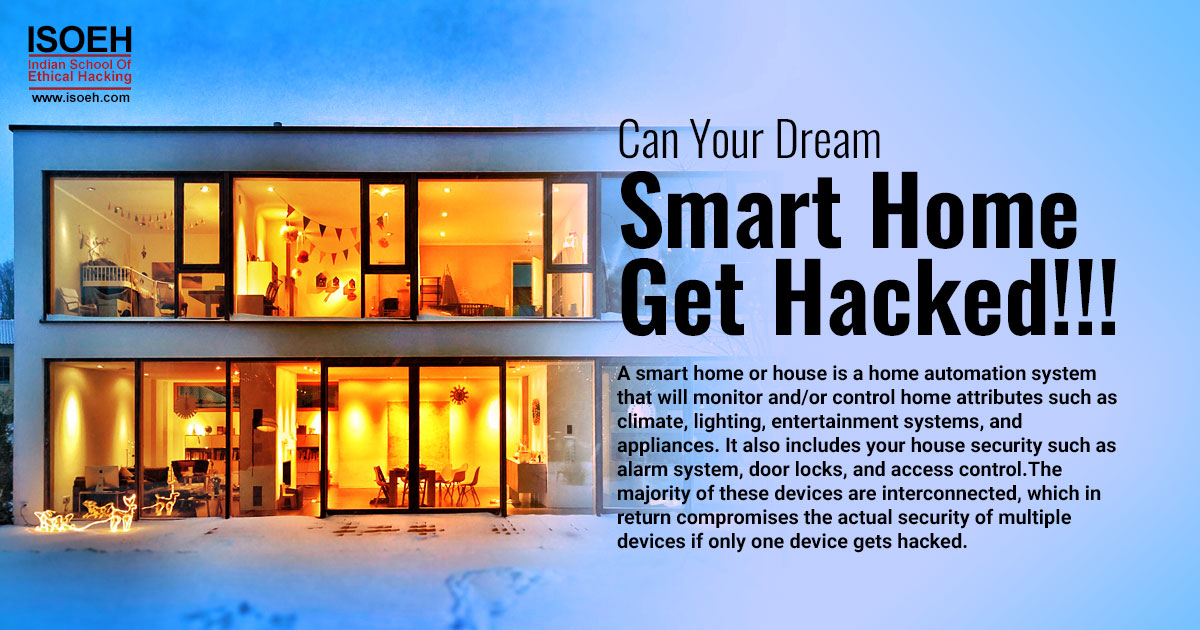
A smart home or house is a home automation system that will monitor and/or control home attributes such as climate, lighting, entertainment systems, and appliances. It also includes your house security such as alarm system, door locks, and access control. Most commonly devices available and used by today’s smart homeowners are climate control devices, security and camera systems, smart locks and entry devices, voice assistants and hubs, lawn and garden devices, kitchen and cleaning devices, and home lighting entertainment devices. These devices hardly have any inbuilt security, which as a matter of fact makes them a perfect target for hackers. The majority of these devices are interconnected, which in return compromises the actual security of multiple devices if only one device gets hacked.
Few common security tips to be kept in mind before you install these smart devices at your home.
- Keep your device up to date regularly.
- Secure and monitor your network.
- Enable multi-step authentication.
- Ensure that all your smart home devices passwords are strong.
- Try to keep a unique password and keep changing them frequently.
- Try to install comprehensive security software.
Most popular IoT devices
IoT extends over common things like smart TVs, wearable devices, or smart home appliances. In this advanced digital world, there are dozens of categories of connected devices ranging from simple sensors to complex or unusual products. They are as follows:

1. Smart Watches
The Internet has advanced from the computer age to the mobile age over the last few years. In 2020-2021 smartwatches are some of the fastest-growing IoT devices.Simultaneously there has been rapid growth noticed in the device segment — wearables, notably smartwatches.Their popularity recently experienced several spikes.According to real-world device data,smartwatches are third among all connected devices, trailing only smartphones and computers.

2. Gaming Consoles
Gaming consoles experienced two peak growthsin the last 15 months: The first one happened when the quarantine started and a second one during year-end holidays and sales. Though there are few leading console brandstheir market penetration is quite significant, making gaming consoles one of the most common connected devices on home networks. PlayStation 4 is the most popular gaming console.
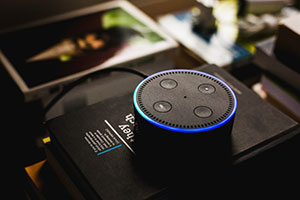
3. Voice Control Devices
The lock-down phase has grabbed the market for voice control devices.For example: Amazon Echo, Alexa, Google Home, etc.
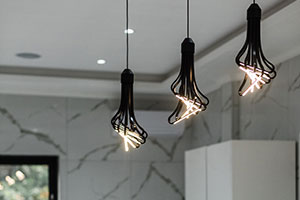
4. Lighting Appliances
Smart light bulbs, automated lighting systems, and adaptive lighting solutions are some of the most popular consumer-grade IoT devices and are still among the most popular ones after every new product added in the lighting market every year.
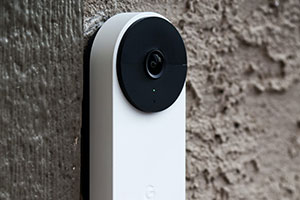
5. Smart Doorbells
There are several categories of smart home safety devices, and all of them had similar adoption rates but the most popular one is the smart doorbells. Whereas, connected smoke alarms and smart key locks have a small and stable niche market in the connected device ecosystem.
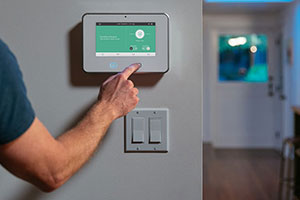
6. Alarm System
In the last pandemic era, Alarm systems had a surge almost triple compared to all connected devices.
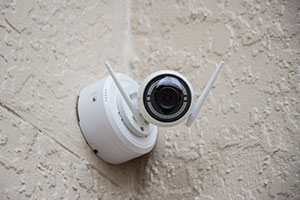
7. Cameras
Connected cameras have an established niche market in the IoT ecosystem, and this is one of the most notoriously insecure devices. The built-in algorithm, constantly prevents malicious remote access attempts of these devices, as well as automatically monitors them for suspicious connectivity patterns.
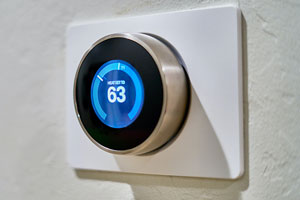
8. Smart Thermostats
Making the room cooler or warmer with smarter dynamic controls, smart thermostats have a stable, established segment in the smart home IoT ecosystem.
Rising Star IoT Devices:Few other Internet of Things (IoT) devices have gained substantial popularity recently. They are:
- Sports and Fitness Devices
- Home Robots
- Connected Cars
- Smart Photo Frames
Can Your IoT devices Get Hacked?
Smart homes use internet-connected devices, such as light switches and fridges, that can automatically flick on your lights, open doors, or even alert you when you’re running low on milk.Smart-home devices are attracted to a surfeit of security vulnerabilities that can put your data or property at risk if you’re not very careful. Below is the type of threats posed by your smart-home devices—and how to mitigate them.
- Targeted Attacks: Smart-home devices hold detailed information of personal information such as birth date, credit card details, and other personal information that cybercriminals can steal via hacking if the devices are not properly protectedfromthwart attacks. They can then use the stolen data to launch targeted attacks to trap you into lucrative deals.
- Identity Theft: In some instances, instead of breaching a single individual’s smart device to get his data, a hacker will dig the database of a smart-device company to gather the data of all its users. Massive data breaches can expose the data of thousands of certain smart device users. For example, if you fall under those unfortunate users, a cyber-crime expert can apply for credit cards using your name, take out a mortgage under your name, or otherwise imitate you and turn your life upside down. You can reduce the risk of a data breach by sharing less information with your smart devices and also by regularly changing passwords. Sometimes, smart-home hubs that connect all the smart devices on your network are secured with a weak password which is very attractive for hackers. This security gap allows clever hackers to easily penetrate and grant access to the hub and tamper with it and other smart devices of yourhome. To avoid this kind of virtual break-in, always create complex, unique passwords and use two levels of authentication for all your smart devices.
- Location Tracking: Smart home devices when get hacked can compromise your real-time location to hackers. Intelligent cybercrime experts may use attractive offer links to dupe you into their trap and if you click on the malicious link by chance your system gets compromised and so does your stored data. So always avoid suspicious links and maintaining a second network just for smart-home devices can help you to protect your coordinates.
- Home Intrusions: Tampering smart-home locks and cameras can intrude potential hackers to get access to your house. If they identify any loopholes in any of these devices then they could disable the cameras or unlock doors for intruders which will help the buglers to rob you fully or even you get locked in your own home. So before installing smart home locks and cameras be sure that they have strong locking algorithm systems.
- Appliance or Property Damage: If cyber-crime criminals get access to your thermostat device, then this will be more disastrous because they can control your home temperature and control it by forcing your HVAC system into overdrive and causing it to malfunctionaccordingly. Even worse, they can even light up your oven and bring your house down on fire.
- Rogue Recordings: Hackers can also exploit security loopholes to break into the speaker and plant their own commands or dig prior recordings. To protect your privacy, periodically delete stored recordings, don’t pair security devices such as cameras or door locks with the speaker, and always turn off your smart speakers when not in use.
- Third-Party Flaws: Homeowners use smart devices remotely to turn off and on from their third-party mobile app or smart-home platforms.But apps without secure authorization may allow users other than you to imitate you and operate your devices if they get their hands on your phone.Plus, some apps perform group operations permissions on the device rather than requiring separate permissions for each function. This will give a hacker the ability to, access remotely to lock and unlock your front door. So, when you are in doubt, use only authorized apps and platforms to control your smart devices.
Hacking Tools
Explore All Hacking Tools »
UFTP is an encrypted multicast file transfer program for secure, reliable & efficient transfer of files. It also helps in data distribution over a satellite link.
Read DetailsBreaking News
Breaking News Of Each Month »
The recent pandemic was unexpected and unknown to most part of the world. It has changed our life and we are slowly adapting to our new lifestyle. The risks associated with the new lifestyle, both personal & corporate, are unknown to most of us.
Read Details



